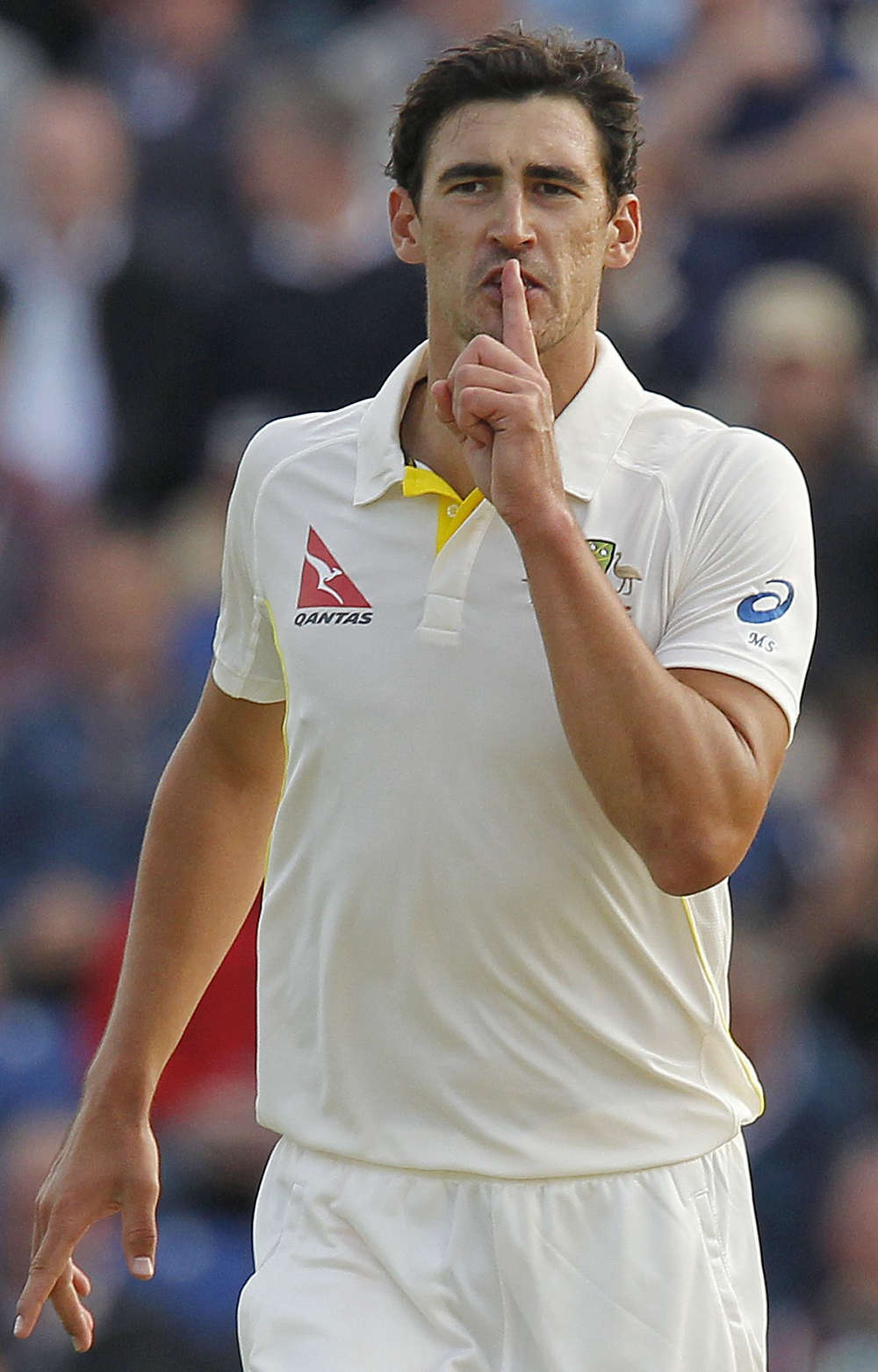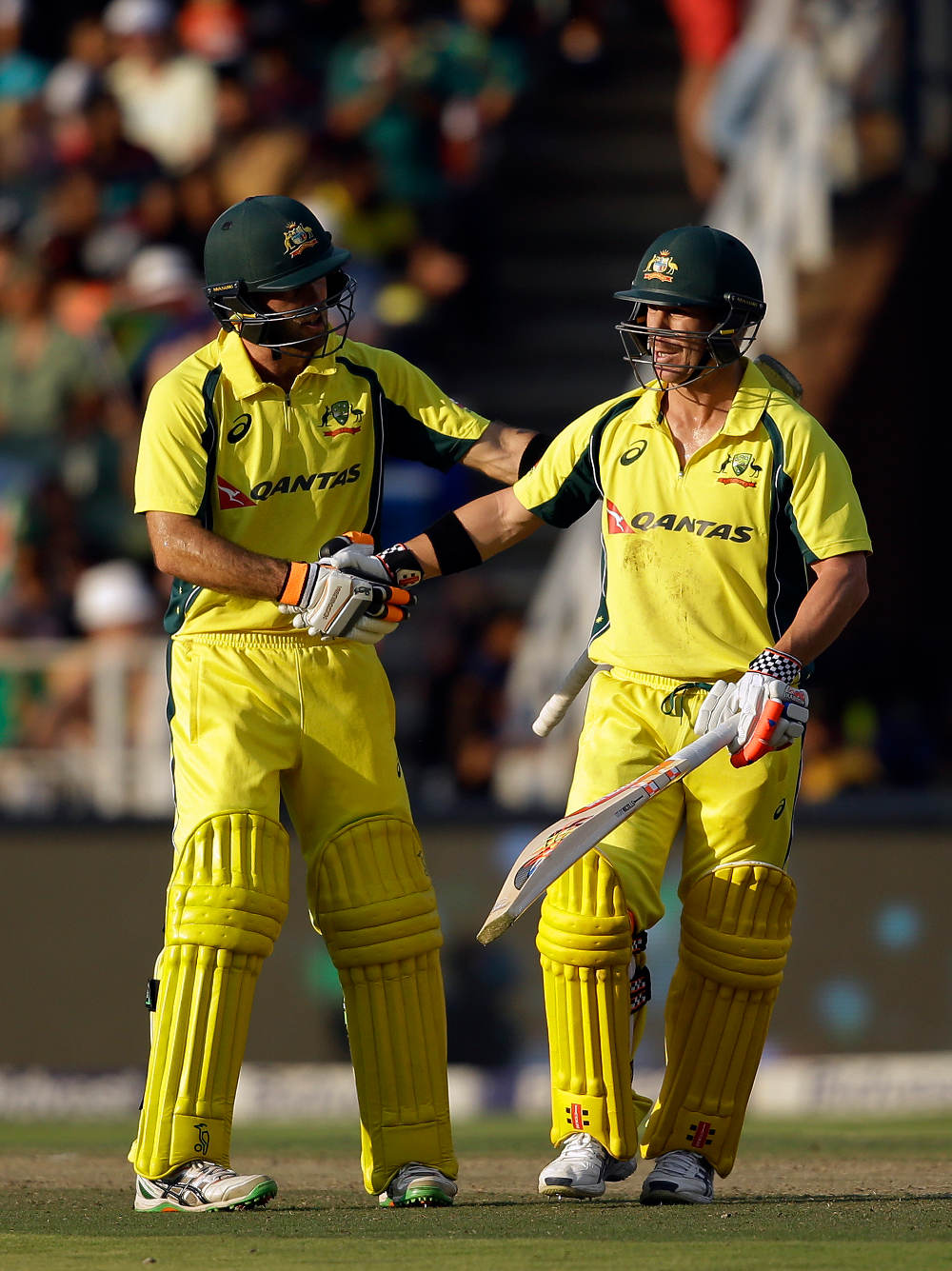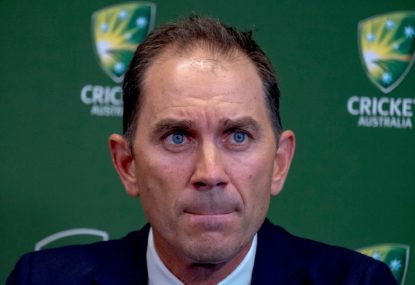New Australian cricket coach Justin Langer has been handed a tough task to rebuild a wounded and fractured team.
Here are three of the many things Langer needs to achieve as coach:
Don’t let the Australia team become shrinking violets
So devastating was the ball-tampering scandal, and so severe the criticisms it prompted, that there’s a risk of the Australian team overcorrecting in their on-field behaviour.
Despite the fact it is not directly linked, sledging has been a focal point of the public dissection of the team. Much of the criticism of their sledging has been exaggerated or ill-informed.
The reality is that, under Steve Smith, there was moderate sledging compared to previous line-ups. They sledged no more aggresively than the likes of India, England, South Africa, Sri Lanka, Bangladesh or the West Indies.
Among current players, only David Warner and Mitchell Starc are regular heavy sledgers. You don’t often see heated verbals from the likes of Smith, Tim Paine, Pat Cummins, Usman Khawaja, Matt Renshaw, Joe Burns, Josh Hazlewood, Shaun and Mitch Marsh, Aaron Finch, Glenn Maxwell, Marcus Stoinis or Ashton Agar.
There’s no doubt Langer needs to address the dressing room culture which allowed the ball tampering to occur. But sledging doesn’t need to be eradicated. As long as what they say is not offensive, the Australians should be left to use their voices on-field as they see fit.
New skipper Paine has already said sledging won’t be encouraged under his leadership. What else could he say though, really, amid the media maelstrom that followed the ball-tampering fiasco?
Langer played in an Australian team which sledged far more often and far more aggressively than the team Smith led. It will be fascinating to see how much rope the coach gives his charges in regards to verbal sparring.

Mitchell Starc might need to hush up, but the rest of the team are fine. (AFP PHOTO / IAN KINGTON)
Treat T20s with respect
Langer is the most successful T20 coach in the history of Australian domestic cricket. Now he needs to convince the power brokers at Cricket Australia to start taking the format seriously at international level.
Australia have massively underperformed in T20s across the format’s 13-year history, in a large part because it has seemed to be a distant third priority. They have made the same mistakes over and again for years in T20s, from team selections to on-field strategies and scheduling.
Firstly, Australia have far too often picked experimental teams, blooding players who either weren’t ready for international cricket or not suited to the shortest format. It has not been uncommon to see Australia field two vastly different squads in successive series.
By settling on a core group of players, as they have done in Tests and ODIs, Australia will give themselves the best chance to finally become an elite T20 team. They have the requisite talent to quickly achieve such a goal.
Secondly, Langer needs to redress the lack of faith in spinners. It has been patently clear for years now that spin is the key to a T20 bowling attack, regardless of the conditions. Remarkably, the top seven-ranked bowlers in the format all are spinners, yet Australia often pick pace-heavy attacks.
The third thing Langer should try to influence is scheduling. CA have tended to treat T20s as an afterthought, wedging series into the calendar at unappealing times. On more than one occasion Australia have had T20 ODI series virtually overlapping, requiring two different teams to be in two different locations at the same moment.
This is another indicator of the disrespect shown to the format.

Glenn Maxwell and David Warner are elite T20 players but Australia struggle (AP Photo/Themba Hadebe)
ODI tactics must be modernised
Australia right now are rank outsiders to retain the World Cup at next year’s tournament in England. If they maintain the same strategies they’ve used since the last tournament, they’ll be lucky to even beat the likes of Afghanistan.
On the bowling front, just like in T20s, Australia must make better use of spin. Tweakers are hugely valuable for slowing the run rate and taking wickets in the middle overs. The Aussies should always play at least one specialist spinner and strongly consider using two on slower pitches, with Ashton Agar, Nathan Lyon and Adam Zampa all offering something different.
However, it is their batting approach most in need of an overhaul, having been far too conservative at a time when the number one ODI team in the world, England, have been dominating the format via extreme aggression with the blade.
England’s top seven go after the bowlers throughout the entire innings. When this comes off, they score massive totals of 350-plus, something they’ve done regularly over the past three years. When it backfires, they trust their strong lower order to guide them to a competitive total.
In a first-choice Aussie line-up, an eight-nine-ten lower order of Agar, Cummins and Starc gives Australia similar batting depth to England. A top seven laced with dynamic batsmen must be selected and encouraged to take the game on.
If Australia are going to surprise the cricketing community by defending their World Cup trophy, they won’t do it by playing safe. Their only hope is to take risks.
Fortune favours the brave, Mr Langer.































































































